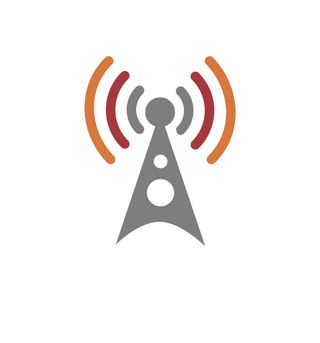FCC Proposes to Open Entire 6 GHz Band for Unlicensed

FCC chairman Ajit Pai is proposing to open the entire 6 GHz band for unlicensed wireless broadband.
He has drafted rules that would make all 1,200 MHz available for some unlicensed devices, which would share with incumbent users including broadcast electronic newsgathering (ENG).
Broadcasters had argued that while some of the band could be opened up for unlicensed use, sharing the ENG spectrum will be problematic. AT&T also had issues with sharing--carriers also use the spectrum for backhaul, as have utility company incumbents.
Cable operators were supportive of opening the band for more WiFi, their principal mobile broadband play.
Related: Broadcasters Seek FCC Meeting on 6 GHZ
Computer companies including Broadcom, Microsoft, Facebook, Google and Qualcomm argue that sharing across the entire band was doable. The FCC appears to agree.
Not a big surprise since freeing up as much spectrum for 5G as possible is an FCC priority.
Broadcasting & Cable Newsletter
The smarter way to stay on top of broadcasting and cable industry. Sign up below
"Unlicensed devices would share this spectrum with incumbent licensed services under rules that are crafted to protect those licensed services and to enable both unlicensed and licensed operations to thrive throughout the band," the FCC said of the proposal, which is teed up for a vote at the April 23 meeting.
The proposal is to authorize standard power unlicensed in 850 of the 1,200 MHz in the band, with lower-power indoor use across all 1,200. The FCC would use an automated frequency coordination system to prevent interference.
“From WiFi routers to home appliances, Americans’ everyday use of devices that connect to the Internet over unlicensed spectrum has exploded,” Pai said in a statement. “That trend will only continue. Cisco projects that nearly 60% of global mobile data traffic will be off-loaded to WiFi by 2022. To accommodate that increase in WiFi demand, the FCC is aiming to increase the supply of Wi-Fi spectrum with our boldest initiative yet: making the entire 6 GHz band available for unlicensed use. By doing this, we would effectively increase the amount of spectrum available for WiFi almost by a factor of five. This would be a huge benefit to consumers and innovators across the nation. It would be another step toward increasing the capacity of our country’s networks. And it would help advance even further our leadership in next generation wireless technologies, including 5G.”
The item includes a Further Notice of Proposed Rulemaking that seeks comment permitting very low-power devices to operate across all 1,200 GHz, both indoors and outdoors, to support high-speed, short-range devices like wearables, augmented reality and virtual reality devices.
“The draft deserves, and likely will get, unanimous approval from the FCC," said the Benton Institute for Broadband and Society. "The action most certainly is not a 'giveaway,' as the National Association of Broadcasters recently said. To the contrary, this spectrum has always belonged to the public. Devoting it to unlicensed use will enable those owners - the public - to use it for important and beneficial purposes.
"Consumer advocates commend the FCC for its pathbreaking spectrum-sharing order," said Michael Calabrese, director of the Wireless Future Project at New America’s Open Technology Institute. "Opening the entire 6 GHz band for low-power, gigabit-fast Wi-Fi in every home, school, and enterprise will accelerate the availability and affordability of next-generation applications and services nationwide. Even the fastest fiber broadband internet service is useless for consumers without the Wi-Fi spectrum needed to connect all of our laptops, tablets, and smartphones.”
“With millions of Americans relying on broadband networks to remain connected and productive while practicing social distancing, the need for WiFi sharing in 6 GHz has never been more clear to more people," said Charter in a statement. "The FCC’s proposed 6 GHz Order will open up critical resources to improve WiFi performance as workers, students, patients, healthcare providers, and financial institutions rely increasingly on online connectivity."
Contributing editor John Eggerton has been an editor and/or writer on media regulation, legislation and policy for over four decades, including covering the FCC, FTC, Congress, the major media trade associations, and the federal courts. In addition to Multichannel News and Broadcasting + Cable, his work has appeared in Radio World, TV Technology, TV Fax, This Week in Consumer Electronics, Variety and the Encyclopedia Britannica.

